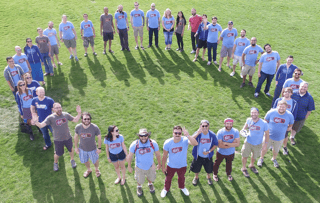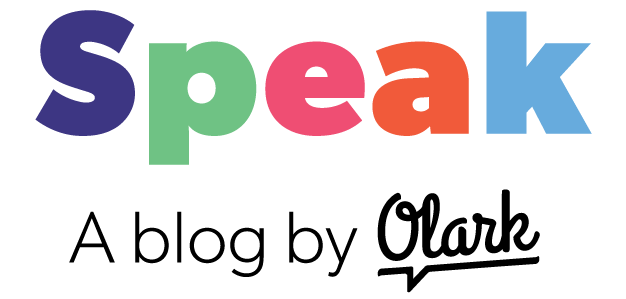“Choose a job you love, and you will never have to work a day in your life.” — Confucius
For me building companies was never about money. It has always been about creating self sustaining organizations where I could hang out with my friends doing something that we all enjoyed.
 I grew up in the greater Washington DC Area, a suburban sprawl where almost everyone I knew grew up to work for the federal government in one way or another. A job was paycheck, and work was work. In this world of 9-5 jobs, my father was a countercultural example: a professor with a flexible schedule, and the freedom to spend his free time thinking and writing about his interests.
I grew up in the greater Washington DC Area, a suburban sprawl where almost everyone I knew grew up to work for the federal government in one way or another. A job was paycheck, and work was work. In this world of 9-5 jobs, my father was a countercultural example: a professor with a flexible schedule, and the freedom to spend his free time thinking and writing about his interests.
Before I knew I wanted to start businesses, I knew that I wanted to create a path that would provide me the flexibility and freedom to choose my own direction.
"If you want to understand the entrepreneur, study the juvenile delinquent. The delinquent is saying with his actions, "This sucks. I'm going to do my own thing." —Yvon Chouinard, Founder of Patagonia
I always felt that the biggest risk we took as founders was that if somehow we were not successful we might find ourselves merely working a job for a paycheck. At best we would be working on someone else’s dream, at worst we’d forget that we had dreams of our own.
This risk has been a guiding principle for the growth of Olark (http://www.olark.com), a company I cofounded with a few close friends. As we expand, we are looking to grow our team by adding other individuals who share our passions and are fulfilled by helping shape a company that they also own.
I remember my first entrepreneurial success.
At the end of middle school I decided to spend my time doing something useful instead of wasting my time playing computer games and building pointless websites. I somehow managed to convince a few people to hire me to do web development work, installing scripts, and building simple websites for dollars an hour (it was a real good deal for them - and for me, as I was basically being paid to learn).
Shortly after dabbling with custom development work my cousin Roland and I started Nethernet Consulting with a $100 loan from his parents to buy the nethernet.com domain name. (In retrospect, we should have bought something like search.com as 1997 was still the wild west of domain names). Just a few months after getting started we landed a development contract that allowed me to bring on my friend Kevin as a 3rd partner in Nethernet.
The success was that Kevin was able to quit his mindless job typing up the newsletter for his mom’s church, and instead do what he loved: write computer code at 100 WPM. I had liberated my first friend.
Around my junior year of High School Nethernet the consulting company morphed into Netherweb the web hosting company. There were a variety of reasons for this decision, but the main reason was that consulting really wasn’t that much fun. You were stuck either finding new jobs, or in the best case just getting paid to do more work for someone else.
In 1998 we invested some of our profits from Nethernet into our first web server, Davinci. (As was the fad at the time we named our first servers after renaissance painters). For three High School students the best thing about running a web hosting company was unlimited access to computer hardware. We built our own servers, taught ourselves how to manage Cisco switches bought from eBay, and learned all we could about how the Internet worked.
The added stress and sense of accomplishment from running our own company helped us move so much faster than what is possible in the classroom. Kevin, Roland, and I were fascinated with computers and the Internet. We worked so hard at starting a company in high school because we loved what we were doing.
Extrinsic rewards can never match the intrinsic reward of doing what you really enjoy. Netherweb never was amazingly successful, but it sure beat the jobs my friends had in high school and undergrad. As college freshmen we rented an office at Virginia Tech’s corporate research center. We decked it out with whiteboards, and cheapest chairs and folding tables we could find (we took a similar approach for Olark).
In our minds the office added legitimacy to what we were doing. We had a fancy address: 2000 Kraft Drive, and access to a fancy board room, but we didn’t have the same dedication as in high school. We stopped doing customer service ourselves and hired a few of our friends, and some outside contractors to keep our customers happy. Losing touch with our customers was one of the biggest mistakes we made with Netherweb, and was a important learning experience.
I will never let that happen again. At Olark every employee does a bi-weekly rotation on support, from the CEO to the most junior engineer, we’ve ingrained our culture with a call to serve our customers.
“Customer Service Isn’t Just A Department!” - Tony Hsieh, CEO Zappos
Rome wasn’t built in a day, and Netherweb didn’t die in a day either, in fact when we as founders stopped paying attention to support, Netherweb was still a growing company. We learned so much through failure.
Netherweb was run as a 4 hour workweek company long before Tim Ferriss coined the term. One night a week Kevin and I accompanied by one of our friends (usually Alpha) would head out to the office and hack late into the night. In those days we pumped most of our revenue back into the company so on the days we worked in the office instead of paying ourselves an hourly wage we would go out for a really nice company sponsored dinner. Taking our friends out to a nicer dinner after a day of hard work was much more appreciated than the equivalent salary, and much more fun. In my experience fringe benefits are almost always valued at more than their cash equivalent. Understanding how to hack reward systems to make your team happy is just part of the fun of running a company.
We learned also how to hack code.
In web hosting three things are important: uptime, speed, and customer service. When you are running a web hosting company on the side, the first thing you’ll realize is that you have to do a lot of customer service when the servers go down or are slow. If you can keep things fast, and the servers on, you won’t need to do as much customer support. If you can make it so that your customers can order your service and be setup instantly, you can make money in your sleep.
Netherweb was one of the first companies to launch a clustered hosting solution; we were too dumb to know how to market this effectively, but by hosting our customers sites across multiple servers we were able to eliminate downtime, deal with busy sites, and never have to wake up in the middle of night when a server went down.
We were also one of the first companies to completely automate the web hosting order process. Our customers could signup for web hosting, buy a plan, and be live on a server in minutes -- believe it or not it used to take days for a some web hosts to create a new account.
In retrospect, we were much more intrigued by the technology and building a cool product than we were with running a business. It’s as if the primary purpose of the business was to enable us to play around with cool technology, rather than provide our customers with a service. I still love playing around with cool technology to build awesome products, although now the awesomeness of the product is a function of how much our customers love it, rather than it’s technical coolness.
Even while serving thousands of customers we never fully committed to Netherweb. It was a fun summer job, a great learning experience, a good story, but it always was just something we did on the side while pursuing other goals. We sold Netherweb in December of 2008 to avoid making the same mistake for our current venture, Olark.
Roland and I founded Olark Live Chat from the ashes of Netherweb, adding Matt and Zach as early founders to help us build the new company. From the beginning we committed much more to Olark than we ever did to Netherweb -- where Netherweb was do or do school work, Olark was do or get a real job. Where Netherweb one of many juggled ideas Olark has become the one idea, Olark has become the vehicle for fulfilling my motivations.
If there is anything to learn from this, it’s that you can get pretty far working on something part-time, but it’s only once you fully commit to it that you will know where it can take you. I love my wife. I love my life. I love my job. I love building a great product that customers love. I love building a great company where each and every team member has the flexibility and freedom to do what they love, with ownership over the fruits of their labor. I love building a company that delivers happiness to our employees, our customers, and our customer’s customers. I love continuously learning from both from success and failure to iterate, improve, and try again. I love creating a company where I want to work.
The freedom and direction to create my path and choose my direction while making the world a better place, is my sappy reason for doing what I do.

.png)